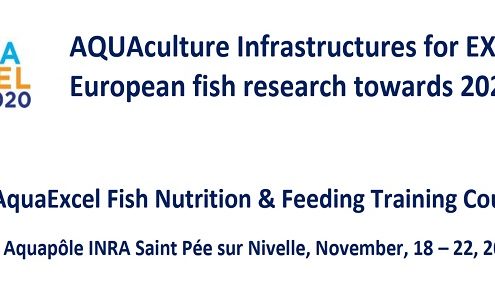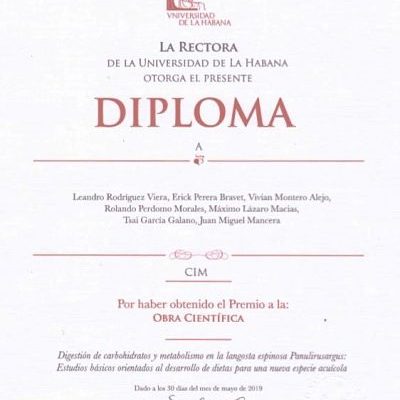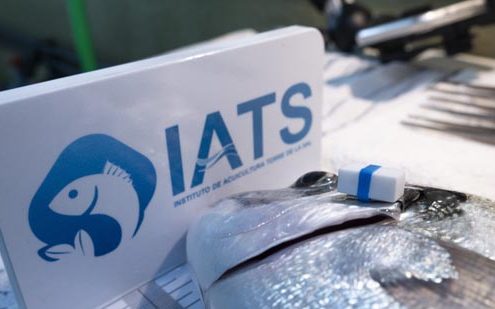
IATS-Nutrigroup and Fish Pathology groups at AQUAEXCEL2020 Brokerage Event
The second AQUAEXCEL2020 brokerage event was celebrated at Aquaculture Europe 2019 in Berlin, as part of the EATiP Day (October 9th). This event provides an excellent opportunity to share with aquaculture industry stakeholders some of the…

FISH NUTRITION TRAINING COURSE
Prof. Jaume Pérez Sánchez from the Instituto de Acuicultura Torre de la Sal (IATS-CSIC) participates in the training course of Fish Nutrition organized in Saint Pée sur Nivelle.
He presented ongoing research in sea bream nutrition and…

University of Havana annual award to scientific work
A work led by Dr. Erick Perera, researcher of the Nutrigenomics and Fish Growth Endocrinology Group at the Institute of Aquaculture Torre de la Sal (IATS-CSIC) and the Full Professor of Zoology Dr. Juan Miguel Mancera of the University of Cadiz…

AEFishBIT: Smart device for tracking fish behaviour
Researchers from CSIC and University of Las Palmas de Gran Canaria reported the design and functional validation of AEFishBIT in the Open Access journal Frontiers in Physiology.
CSIC Communication Office has reported a press release about…

Un aditivo en la dieta de las doradas mejora su resistencia a enfermedades
 https://iats.csic.es/wp-content/uploads/2018/01/IMG_3092.jpg
2448
3264
Difusion
https://iats.csic.es/wp-content/uploads/2021/03/logo-iats-csic-300x66.jpg
Difusion2018-01-18 23:44:572018-01-18 23:44:57La segunda estancia de Lourenço Ramos Pinto
https://iats.csic.es/wp-content/uploads/2018/01/IMG_3092.jpg
2448
3264
Difusion
https://iats.csic.es/wp-content/uploads/2021/03/logo-iats-csic-300x66.jpg
Difusion2018-01-18 23:44:572018-01-18 23:44:57La segunda estancia de Lourenço Ramos Pinto





